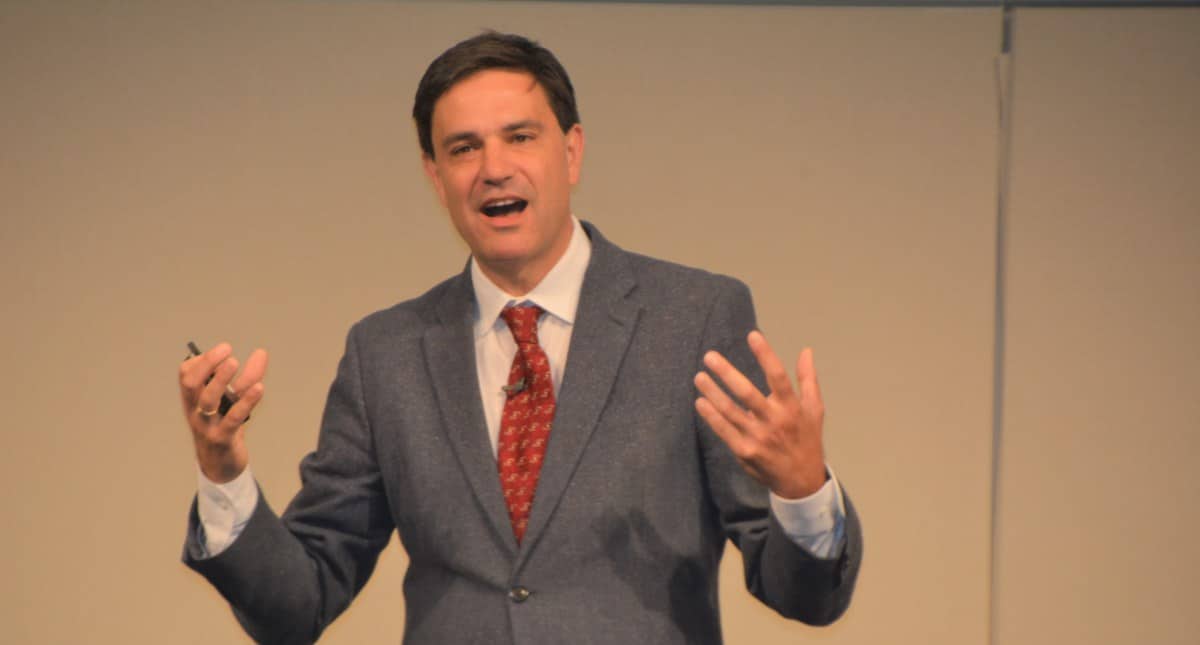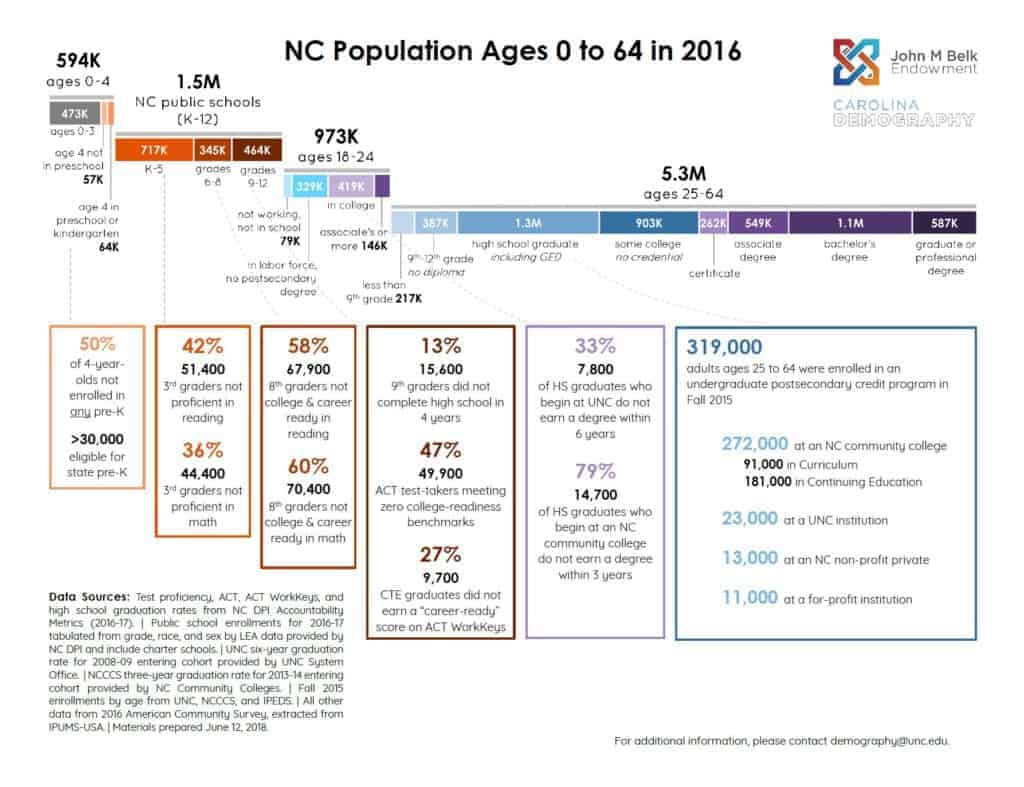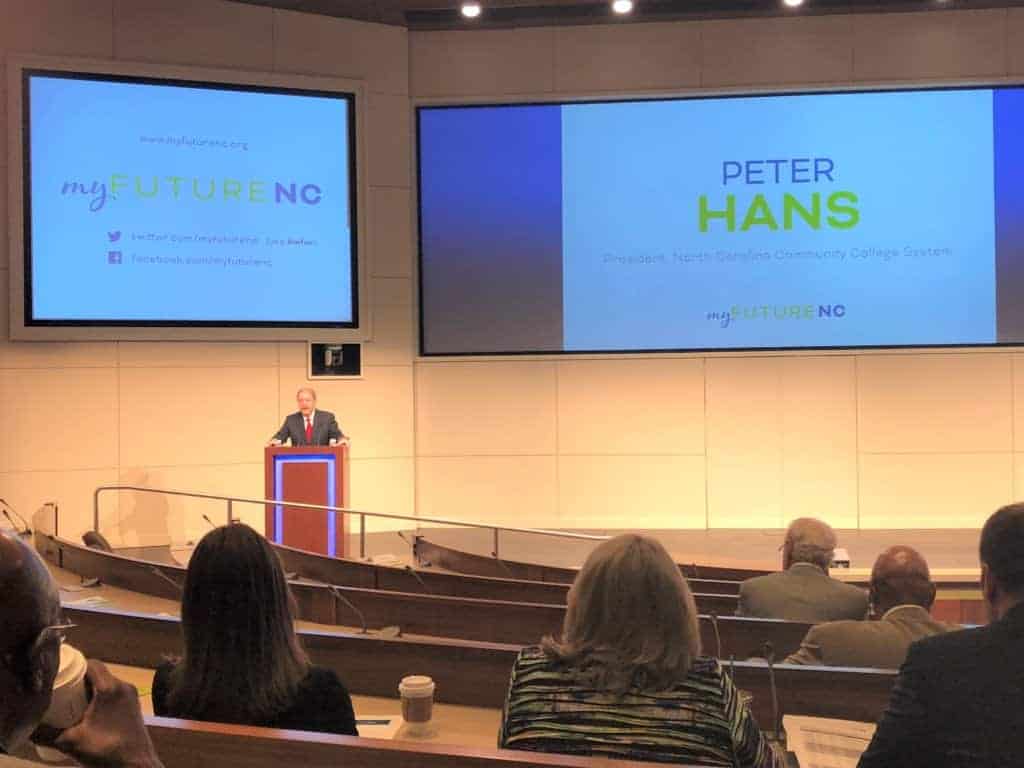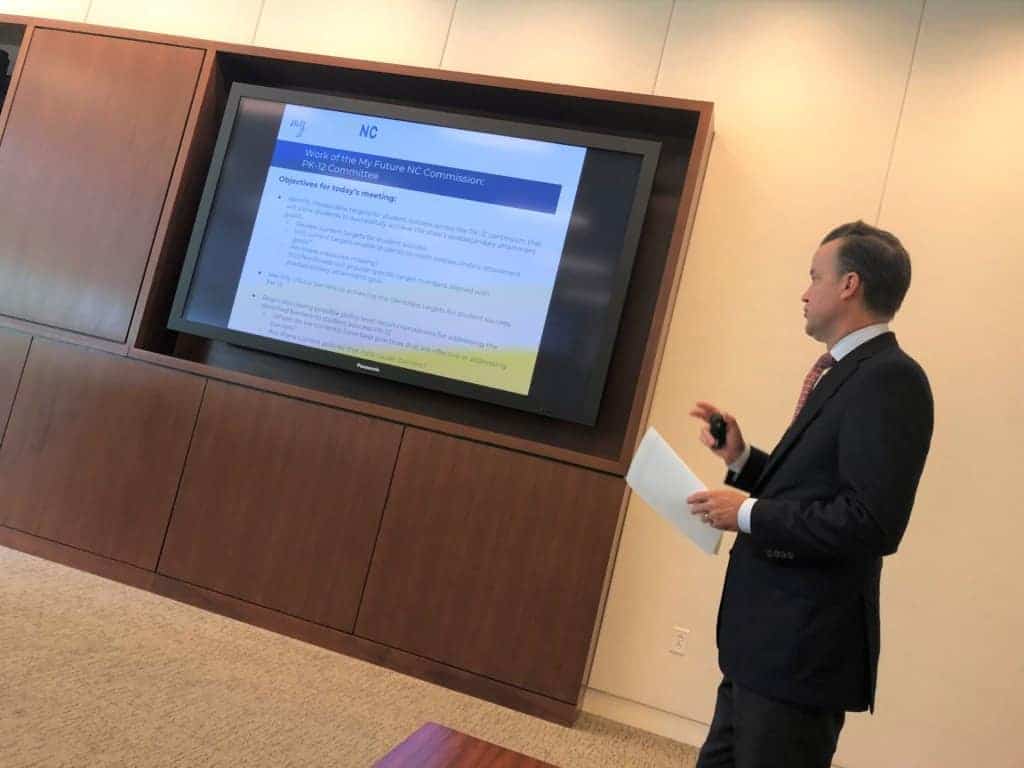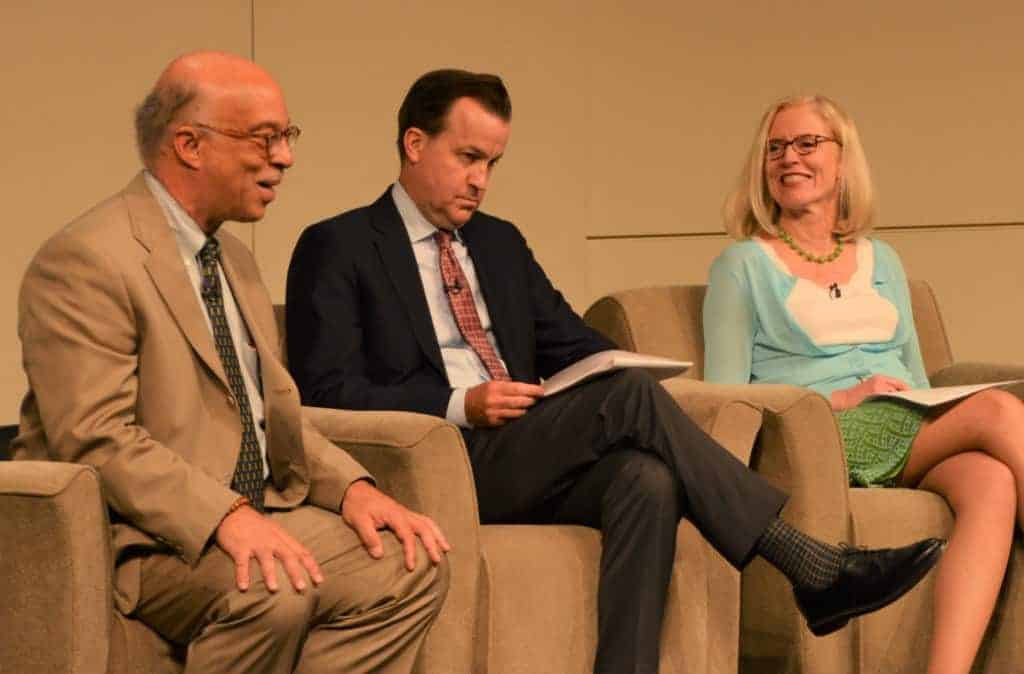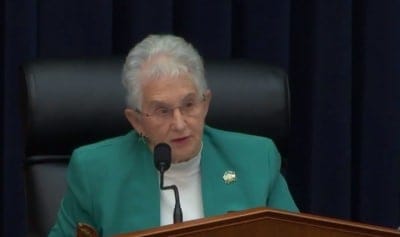On Friday, June 15, 2018, the myFutureNC Commission met on the campus of SAS to continue its work towards proposing a statewide attainment goal. North Carolina is one of five states nationally without one.
In case you are new to the idea of a statewide attainment goal, North Carolina currently loses too many students all along the education continuum.
In case you are new to the work of myFutureNC, here is a good graphic summary of how we got to this point: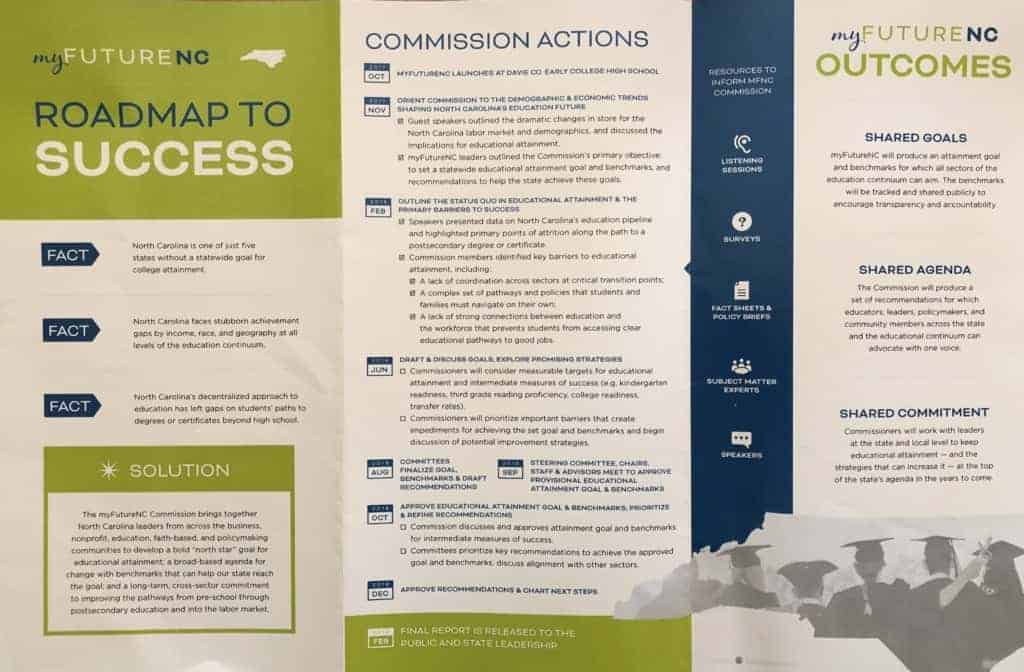

I serve as a subject matter expert on the P12 committee, EducationNC has been using our ReachNCVoices to survey folks participating in the listening sessions across the state, and we have been hosting after work events to make sure teachers and other community members who want to weigh in have an opportunity to do so.
Ahead of the meeting on Friday, The Hunt Institute prepared this multistate overview on postsecondary attainment goals:
Peter Hans, in his new role as president of the North Carolina Community College System, addressed the commission, urging “The North Carolina I know and love can and should set and reach a goal on attainment, but it is only possible by empowering community colleges.”
@MargaretEdu getting us started this morning for today’s @myFutureNC session. Excited to continue planning a statewide post secondary attainment goal to make sure all of our kids have a pathway to help advance NC’s changing economy #mfnc #nced pic.twitter.com/32VVE7hrXv
— Ricky Hurtado (@Ricky_Hurtado) June 15, 2018
ECONorthwest is a new partner to the myFutureNC Commission, and John Tapogna, the president, addressed the commission on setting ambitious, attainable education goals in North Carolina. According to its website, “ECONorthwest develops and maintains scenario-planning tools for U.S.-based education initiatives. The tools forecast key educational outcomes (e.g., attendance in high quality kindergarten programs, high school graduates who are college-ready, and postsecondary graduates), illustrate the relative potential contributions of different solutions or pathways, and break broad national goals into actionable region-level goals. Foundation leaders have used the models to inform strategy and investment decisions, measure progress toward published goals, and communicate their work to outside partners.”
What is NC’s sweet spot on attainment? Tell us what you think. #mfnc pic.twitter.com/9RZ0mOkQH0
— Mebane Rash (@Mebane_Rash) June 15, 2018
Check out #mfnc on Twitter for tweets about Tapogna’s presentation.
The bulk of this commission meeting was spent giving the committees time to “develop stretch goals for each critical milestone throughout the education-to-employment continuum.” Each committee used the briefs below as a resource for their work.
The P12 committee
The P12 committee discussed barriers to student progress from birth to grade 12, milestones that matter, and strategies for addressing the barriers.
This brief on “Aligning Policy Initiatives in Pre-K Through Third Grade,” also was reviewed.
Read Our Latest: Cyndi Soter O’Neil, Senior Policy Advisor for @ChildTrustFdn shares her insights on what is needed for North Carolina’s youngest children to “Start Early to Finish Strong.” https://t.co/D5lEGNmf3N #NCEd #K12 #ECE #EdNC #MFNC pic.twitter.com/wz1tjUdZXd
— The Hunt Institute (@Hunt_Institute) June 15, 2018
The postsecondary committee
The postsecondary committee discussed structural barriers to postsecondary attainment and put together a work plan for the months ahead.
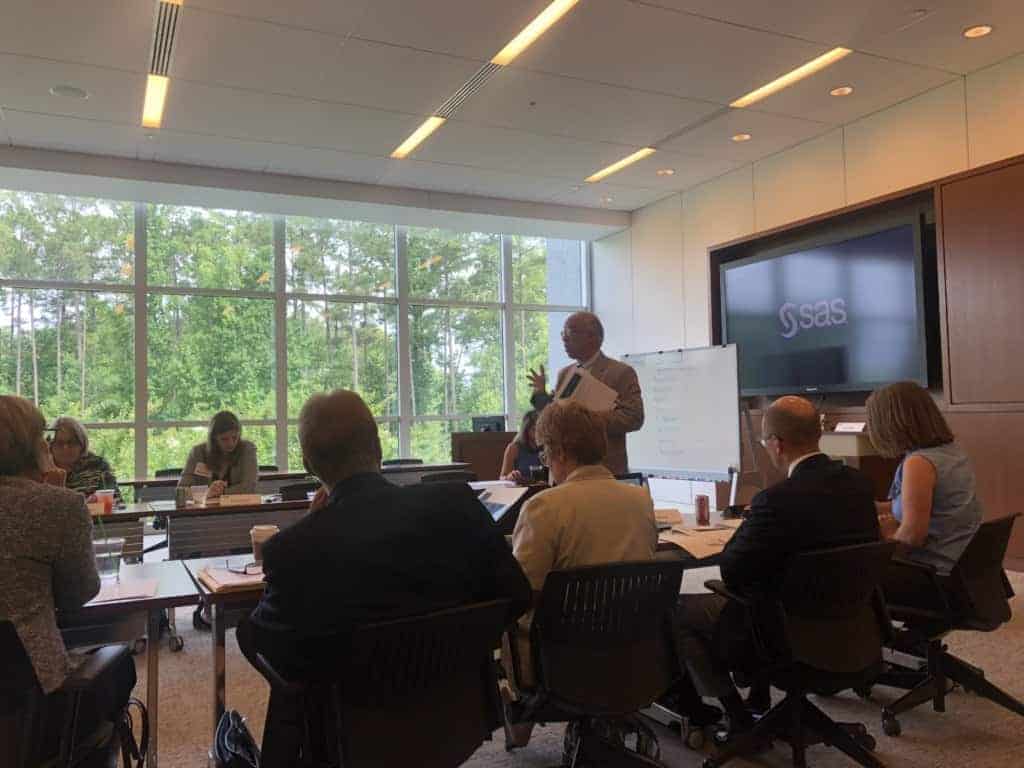

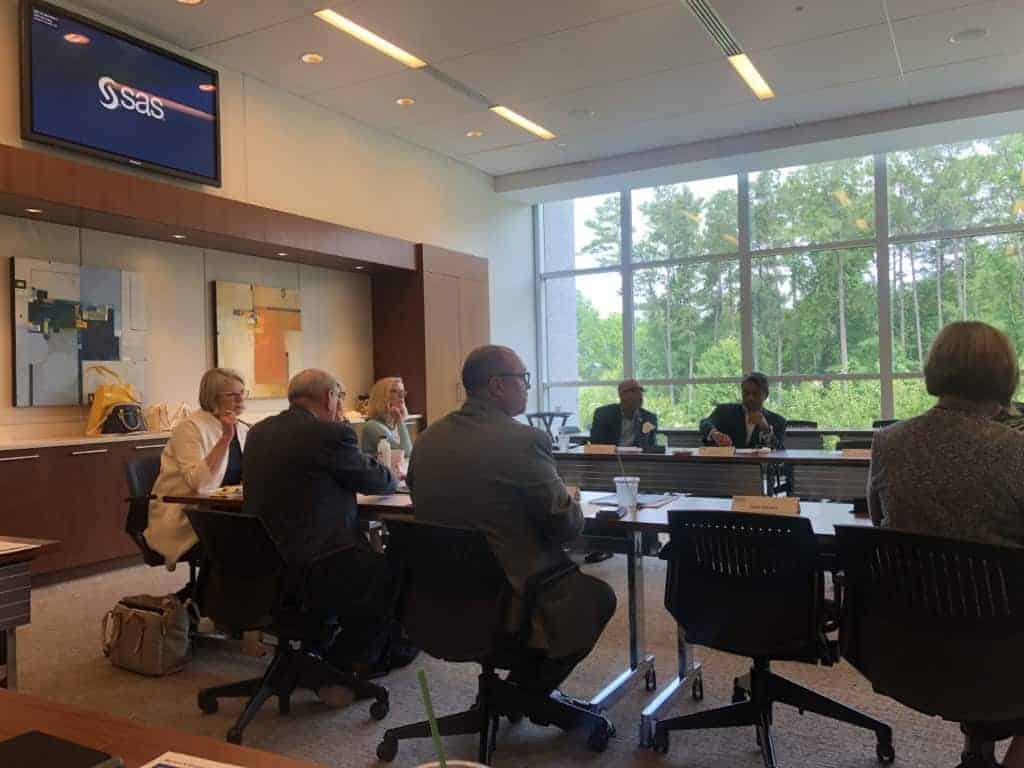

The workforce committee
The workforce committee discussed upskilling the existing adult workforce.
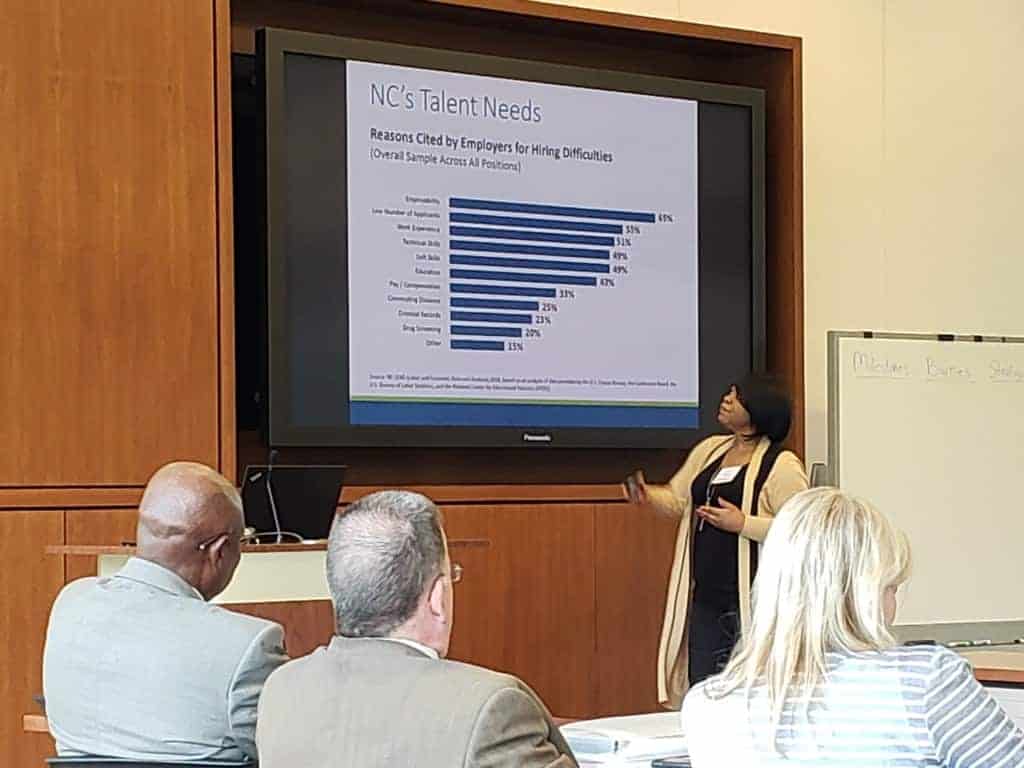

There are 905,000 residents of NC with some college, but no degree. How can we help these folks cross the finish line to earn a credential and increase attainment? @Anita4NC @ncIMPACTsog #MFNC @ncdemography @myFutureNC pic.twitter.com/Ms9k0zlErC
— Emily W. Gangi (@EmilyGangiNC) June 15, 2018
Wrapping up
David Dodson with MDC along with Todd Roberts (co-chair of P12 committee), Mary Hall (co-chair of the postsecondary committee), and Jack Cecil (co-chair of the workforce committee) closed the work of the commission, with Dodson noting “We are one state with many faces. We need to redesign our education system with postsecondary channels responsive to constituencies and customers, demographics and geographies.”
Next steps
The next listening session will be held on the Qualla Boundary at Cherokee Central School on July 12, 2018. Another listening session will be held at the Randolph Community College Continuing Education and Industrial Center on July 18, 2018. Please join us.
The next meeting of the myFutureNC Commission will be held in Asheville on October 4, 2018.
